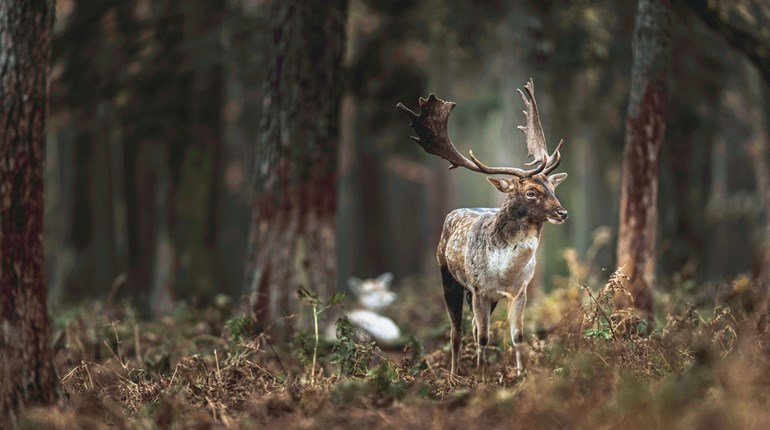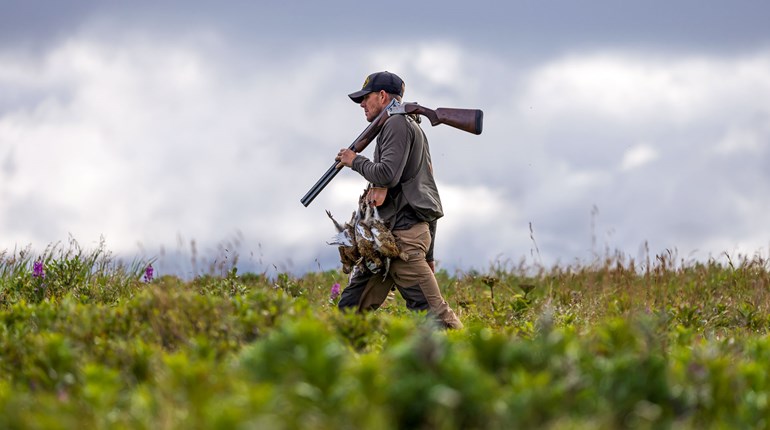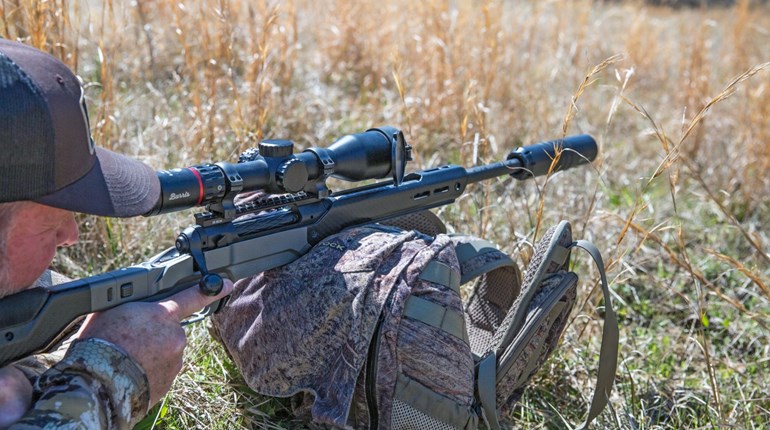
In a 1948 article in TRUE magazine, an extremely accomplished hunter named Grancel Fitz co-opted the baseball term “grand slam” to account for instances where a hunter takes all four species of North American native wild sheep. Since then, the reference has been widely used by outdoor media and hunters, incorporated into the name of an organization, and even been the subject of legal proceedings.
Here, as well as in my article in the February 2021 issue of American Hunter magazine, we use it informally—little g, little s—as opposed to presenting it as a proper name or rank or indeed as anything more than a string of lucky hunts enjoyed by yours truly.
The “slam” mention in that article was so brief, however, that I felt compelled to offer curious readers more details than space permitted within the print pages. Herein, then, is a recap, not only of four successful ram hunts, but also including a fifth, which rather messes up the slam concept. The next best analogy I can come up with is the “straight” from poker, but since the continent’s incredible rams are also called “King of the Mountain,” might we call mine a “royal flush”?
Perhaps that’s overthinking it, so I’ll curb myself to sharing the following notes from those hunts. Included along with pertinent details are excerpts that appeared in subsequent American Hunter articles.
Alaska Dall 1
• Setting: mid-August 2005, Wrangell Mountains; outfitters Mountain Monarchs/Dave Leonard and Northern Air Trophy/Matt Owen; backpack hunt, pup tents; relocated twice during hunt.
• Result: On last day killed small full-curl ram.
• Gear: Kimber M8400 .300 WSM, handloaded cartridges with 180-grain Barnes TSX; Leupold 3X-9X Compact scope, Zeiss Victory 10x32 binos; Kenetrek Mountain Extreme non-insulated boots.

“If the rams stayed where our partners left them, we’d have a shot. To reach the basin we hiked all day, 10 hours under a heavy pack that left me leg-weary. After hastily pitching camp, we had to climb one more and it was after sunset when we broke over the ridge and peered down into the bowl … but the sheep weren’t there now. We circled the rim expectantly, until [guide] Martin Balukas said, ‘It’ll be dark in an hour, but we can probably go around and have a look off the other side.’ He shrugged, ‘We’ll just have to walk back in the dark.’

“That’s where we spotted them. We hurried as best we could, paying no mind to the clatter we raised, nearly running where the footing allowed. Martin kept peeking over the piled rocks and when he finally whistled, I knew we were in business. I followed him, surfing down a long chute of powdery scree, stepping over a grassy patch. Then we slid on our butts until getting sight of the rams.
“’That one’s good,’ Martin pointed, ‘definitely a full curl.’ As we shifted into shooting position the ram trotted away, and then bands of sheep were running below and above us. A single ram farther below stopped running and looked up. Martin said, ‘He’s the one.’”
■ ■ ■
“The mist had turned to a steady, cold rain by the time we started packing the butchered sheep up and out of the bowl. The footing was so slick we frequently slid backwards. Because of the steep grade and the weight on our backs, we spent much of the climb with both hands and feet on the ground. We pressed on like that for hours, and yet the skyline seemed not to get any closer. Foolishly we had emptied our water bottles at the kill site and though now literally drenched, short of licking the stones there was not a drop to drink. At 5 a.m., as the eastern sky transitioned to gray, we crested out, no less satisfied than conquerors of Everest.” —American Hunter, August 2006
Wyoming Rocky Mountain Bighorn 2
• Setting: late September/late October 2008 (two separate trips) Absaroka Range west of Cody, Wyo.; outfitter Ron Dube’s Wilderness Adventures; eight-day horseback hunt from wall-tent camp along with elk hunters, followed by return trip that was an end-of-season drive-and-horseback hunt from Dube’s house; drew tag via U.S. Outfitters application service.
• Result: No kill from tent camp after spotting just one good ram from distance but unable to relocate him; killed young, ⅝-curl ram on return trip, last day of season.
• Gear: Kimber M8400 .300 WSM, Federal Premium w/130-grain Barnes TTSX; Leupold 3-9X Compact scope; Zeiss Victory 10x45 FL binos; Kenetrek Mountain Extreme non-insulated boots.

“The eight-hour ride to outfitter Ron Dube’s wilderness camp was every bit as grueling as advertised. When we finally arrived, I slid off my horse and nearly passed out. As the hunt progressed we kept riding a lot, and Dube, being an outspoken sort, let me know he was none too impressed with my horsemanship.
“When our chance finally came on four rams holed up in a high, timbered draw, we had to push hard. As the going got too steep for horses, Ron and I had to make our longest hike together, pushing our packs and my rifle up through tight, vertical outcrops. Upon reaching the sheep, we found the bigger specimen had wandered off and those remaining were all legal but young. Convinced this would be my last chance, I killed one and was happy to do so.
“Though not what I hoped for, I’ve been around enough to know that the game often determines the outcome. Certainly I was not short-changed on the sheep hunting. Every time, it proves to be so much more compelling than I expect.” —American Hunter, February 2011
British Columbia Stone Sheep
• Setting: mid-August 2009, Spatsizi Wilderness Park; Collingwood Bros. Outfitters/Reg Collingwood; started at Bug Lake lodge, then proceeded on horseback to mobile spike camps; spotted big ram Day 1 that was killed by partner Drew Goodlin from Federal Cartridge.
• Result: After seeing only small rams until Day 4, we spotted two big rams—one dark, one silver—together across canyon; after searching for them the entire next day, we killed the dark ram shortly before dusk.
• Gear: Kimber M8400 .300 WSM, Federal Premium 130-grain Barnes TTSX; Leupold scope; Swarovski EL 10x42 binos; Kenetrek boots.

“[Above the pass] we found a big nursery flock of ewes and lambs. The real prize came when [my guide] Brandon Ponath spotted a lone ram bedded on the skyline … a dark-coated fellow we were sure was a keeper. By and by another sheep came to the ridgetop perch, a light-colored ram that looked good, too. Back at camp Brandon glassed them feeding across a series of open slides and was convinced we must go after them in the morning.”
■ ■ ■
“By the time we got up in the rimrock, sunshine was leaking through the overcast. [Guide] Brandon Ponath whispered that both rams were “right here” and he preferred I shoot the dark one with the bad leg. Across the narrow ravine was the dark ram, more gray than black, its horns a dull gold in the evening light. I shot once and the animal flinched but held its ground. I fired again and this time the big Stone tumbled out of view. As I clawed over the rock, I caught sight of the silver ram running past its fallen companion.
“As hunters, we live for those exceptional, fleeting moments when skill and fate close the circle between the hunter and the hunted. Here our fortunes changed in a matter of minutes, proving that absolute turnarounds can happen when all circumstances suggest otherwise.” —American Hunter, August 2010
Alaska Dall 2
• Setting: mid-August 2018, Brooks Range; outfitter Mountain Monarchs/Dave Leonard and Jordan Wallace; Backpack hunt from river camp to high-country spike camps; walked into a group of rams Day 1 but no shot opportunity, and finding sheep thereafter was sporadic; purchased hunt from outfitter, partnered with Trijicon’s Chuck Wahr.
• Result: Fifth day after moving to a peak dubbed the “Ram Hole,” spotted and killed old ram at the head of a long, green valley.
• Gear: Kimber M8400 .300 WSM, Federal Premium 180-grain Trophy Copper; Trijicon 3X-9X-40mm AccuPoint scope; Leica Noctivid 10x40 binos; Cabela’s Meindl boots.

“Jordan and I had been ‘with’ the ram for hours, first from the crest of the rim, then in two descents seeking confirmation of our first impressions. The ewe and lamb grazing nearby had wandered off, but the full-curl seemed content to mill around and feed sporadically. It was odd, almost comical after all the ridges we had scaled, that the first mature ram we found would be holed up in a creek bottom. When he finally bedded, we made our move … and it proved easy to close within 200 yards. Is it anti-climactic when a hunt like this comes down to such a stalk—expertly plotted, but no so difficult? Well before I fired the shot, this ram was ours.” —American Hunter, August 2019
Texas Desert Bighorn
• Setting: early September, Culberson County, Texas; High West Outfitters/Jim Breck Bean and Jasper Klein; drive-in hunt; saw multiple potential shooter rams on Day 1; hunt arranged by Vista/Federal Cartridge along with Vista CEO Chris Metz, who also killed a great ram.

• Result: killed last ram spotted, a heavy-horned trophy, just before dark in heavy storm with strong winds and rain.
• Gear: Nosler M48 Mountain Carbon Rifle .280 Ackley Improved, Federal Premium 155-grain Terminal Ascent; Bushnell Engage 4x-16x-44mm scope and Bushnell Forge 10x42 binos; Cabela’s Meindl boots.
“The ram was walking again, milling through his ewes and the rock piles, so again I waited. My scope was fogging from the rain and my excitement as Jasper updated the range to 360. It seemed like forever before a shot presented, and I had to take a couple seconds to dope it before pressing the Nosler’s trigger. Again the guide said, “I don’t know where you hit.”

But the ram was gone from view, and quickly Jasper added, “Wait … I think you got him. He just took a dive.” When [the ram failed to step out], we hiked up the craggy hill and found him laid out at the edge of a cliff. While quite different from my other sheep hunts, the stalk-and-kill sequence was as thrilling as any of them.
“[My sheep-hunting luck] is all due to my long employment with NRA Publications, and credit for that goes to NRA members who faithfully support our Association.” —American Hunter, February 2021

































